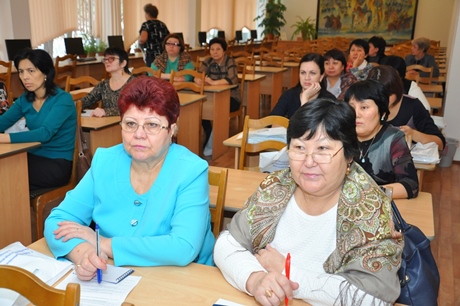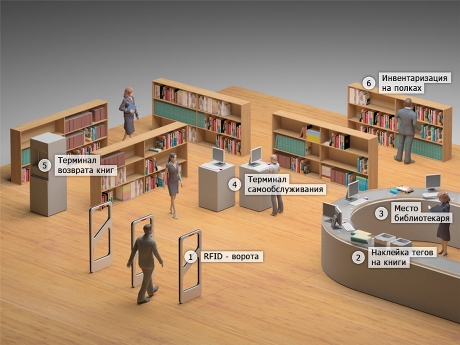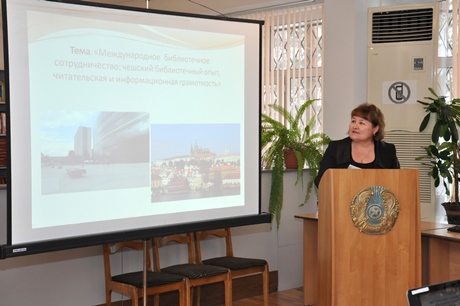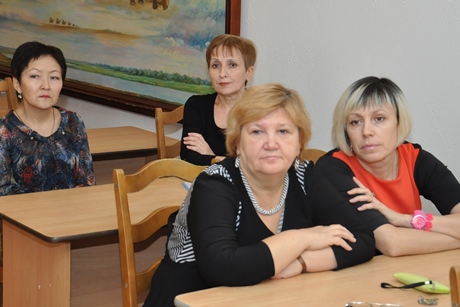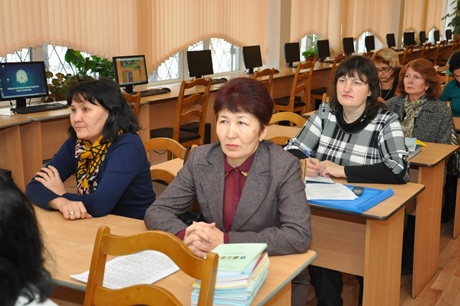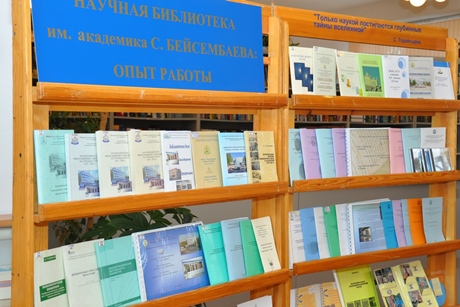Celebrating its 55th anniversary, the scientific library of PSU held a regional seminar titled “The scientific library of the University in information and education sphere”.
“In November of this year, our library celebrates its anniversary. We are already 55 years old. The scientific library of PSU is one of foundational structural units of the University. The unique book depository, which includes about a million periodicals, is rightly considered as an integral part of the education process. Being a scientific one, our library makes it possible for students and the academic staff to solve a wide range of specialized tasks in the sphere of different disciplines. We have a lot of things to be proud of” said the director of the library, Candidate of Historical Sciences Saida Issamadiyeva.
The seminar gathered armarians and bibliographers of scientific foundations of the region. Bookkeepers of HEIs and colleges, for whom the scientific library of PSU served as a reference point since 1978, drew round the table.
Opening the seminar, the director of the scientific library named after S. Issamadiyev delivered a report titled “International library cooperation: the Czech library experience, reader and information literacy”. She noted that “the book foundation of PSU, having rich experience, intends to adopt the most effective technologies in this sphere and evaluate them in the optimal way”.
Thus, RFID (Radio Frequency IDentification) technology implementation program was presented among other innovations. According to S. Issamadiyeva, the technology makes it possible to automate the search process, check-out and check-in, to carry out a high-speed inventory of the library’s collection and to strengthen antitheft protection.
RFID-system consists of various scanning units and RFID-tags, which are affixed to library materials. After a tag has been attached, each book is given a unique electronic code that can be read at a distance.
The use of RFID-systems considerably simplifies the search for a book needed or for an item, which is out of proper order. When a target passes through a radio frequency field, the system automatically gives a signal. In that way, a person can find a needed book, having gone round a book depository with a sensor in hands.
RFID reader portals attached to control points track moving in and out of each item with a RFID-tag. The system checks authorization for library materials removal instantaneously. It will detect unauthorized removal of materials and trigger light and sound alarms.
There is no need to tip books out or remove them from the shelves, while carrying out a RFID-inventory, thereby one staff member can revise more than 10,000 items in an hour.
Staff members of the scientific library of PSU B. S. Alzhanova, G. G. Bondar, T. V. Suprunova, G. K. Amanova delivered reports within the framework of the seminar.
The seminar featured speeches of its guests on interesting and significant issues. A teacher of the Aksu college G. M. Sultanova told about mutual interaction and interrelation of an educational institute with its scientific library as factors of effective training of future librarians. The chairman of the methodical association of colleges Ye. A. Smirnova addressed development priorities of cooperation between scientific libraries in her report.
The head of the library of the technological college T. Biryukova told about milestones of 40-year cooperation with the library of PSU. She noted that “the scientific library holds 3-4 planned seminars, master classes, professional development, reciprocal attendance and experience exchange courses and other events for bibliographers annually. The methodical center PSU Scientific Library greatly assisted libraries of vocational educational institutions in achieving performance goals.
Summing up the regional seminar armarians and bibliographers agreed that “in order to see the maximum possible benefit from implementation of modern technologies, it is necessary to develop a package of deliberate decisions, which implies a purchase of equipment, software and other specialized facilities. Only when there is a clear understanding of requests and expectations for a modernized library, will we develop a solution, not only meeting the requirements and challenges of the present, but also satisfying the needs of future generations”.







